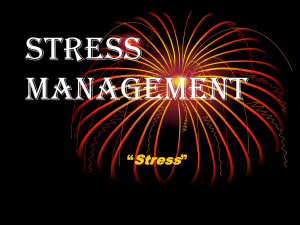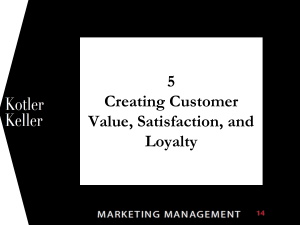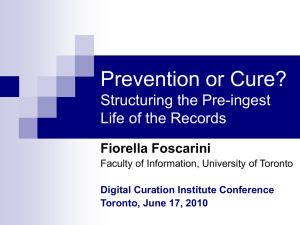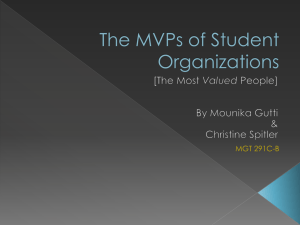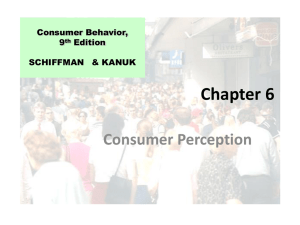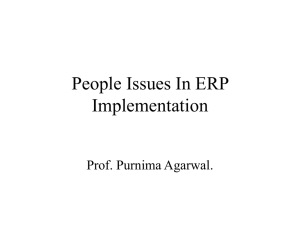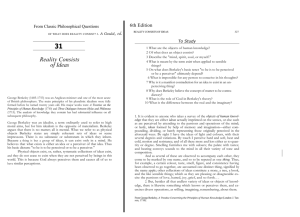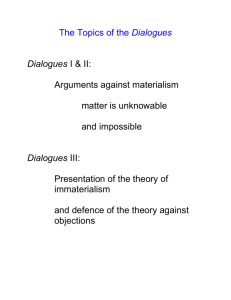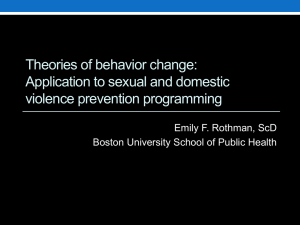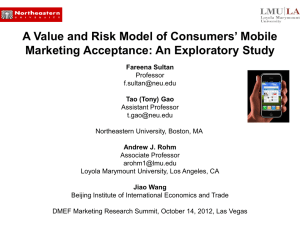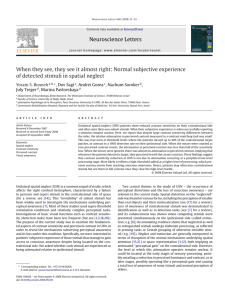Perceived Control
advertisement
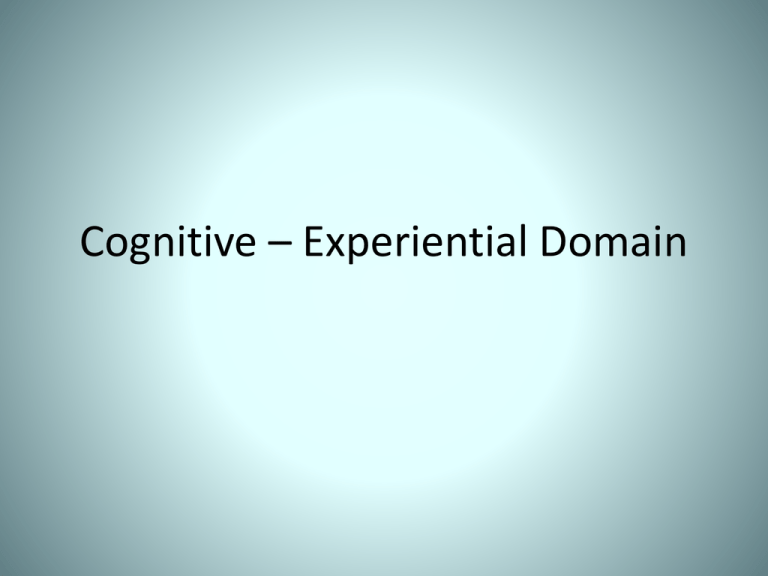
Cognitive – Experiential Domain Personality from the Inside • Emphasis on subjective, conscious experience • How you think, feel, perceive your social world – Chapter 12: Personality and Cognition – Chapter 14: Personality and the Self – Chapter 17: Personality and Culture Personality and Cognition: Perceived Control • Narrow cognitive focus – Judgments regarding causal connection between stimuli • Perceived Control: extent to which we perceive a relationship between two stimuli – Human tendency to attempt to make sense of things Perceived Control – Individual Differences • Locus of Control – Developed by Julian Rotter (1960s) – Based on clinical observations • Scale: Higher scores indicate a more external orientation • External: Generalized expectancy that events are outside of one’s control • Internal: Generalized expectancy that reinforcing events are under one’s control, and that one is responsible for major life outcomes Locus of Control Scale 11 +-----------------------------+-----------------------------+ Internal External Generalized expectancy that one’s outcomes are contingent Generalized expectancy that one’s outcomes are independent of one’s responses of one’s responses. Locus of Control Findings • Internals act as if they have control – Act on basis of expectancies (i.e., prison study) • Generalizes to beliefs about others’ outcomes – If external, believe outcomes for others are independent • Religiosity? – Why? Locus of Control Findings Continued • Socio-economic status (SES)? – Why? • Hours study? • Vote? • Time? – Why? Locus of Control Scale • • • • Better to be internal or external? Problems with scale? Captured by Big 5? Political correlates? Perceived Control – General Principles • Regardless of individual differences, how good are people at detecting relationships between stimuli? • Both overestimate (perceive relationships that are not warranted) and overestimate (fail to perceive relationships that are warranted) Perceived Control: General Principles • Overestimate (erroneously see connections) – Examples? • Two types of reasons: Motivational and Cognitive • Motivational – People are motivated to understand (and predict, explain, etc.) their social world Perceived Control: General Principles • Motivational Explanation • People are motivated to understand (and predict, explain, etc.) their social world – Randomness is uncomfortable; it’s meant to be – Science, religion – However, may be so motivated to make sense that they sometimes make sense when there is no sense to be made (i.e., erroneously perceive a nonexistent connection) Perceived Control: General Principles • Just World Hypothesis (Belief in a Just World) – Belief that the world is essentially just; therefore, bad things don’t happen to good people • Lerner experiments – Ps observe other Ps (actually confederates) in a teacher/learner situation with shocks for incorrect answers. Who is teacher/learning is randomly determined. Ps perceive learner more negatively. Perceived Control: General Principles • • • • Real life examples? Positive outcomes? Effect is greater for those lower in power Effect is greater if a more social orientation is induced – Why? Perceived Control: General Principles • Cognitive Explanations –Poor information processors –Multiple documented biases Perceived Control: General Principles • Illusion of Control (Langer) • Overestimate control over chance (i.e., random) events (e.g. gambling) • Why? Confuse causality and control – Casino games – Lotteries? Perceived Control: General Principles • Illusory Correlation – Wider scope; relevant any time (not just chance events) judging a relationship between stimuli Disease Yes No Symptom Yes 50 25 No 20 5 Perceived Control: General Principles Symptom Yes No Disease Yes No 50 25 20 5 50/75=67% 20/25=80% Failure to consider all possible outcomes Occurs anytime judging a relationship between two stimuli (e.g., Californians and vegetarians; Hoosiers and basketball, etc.) Effect is larger if a priori expectation Perceived Control: General Principles • Underestimate (erroneously fail to see connections) – Examples? • Learned Helplessness – exposure to uncontrollable negative outcomes – belief in no control when it may exist • Dogs and uncontrollable shocks • Humans and uncontrollable noise

